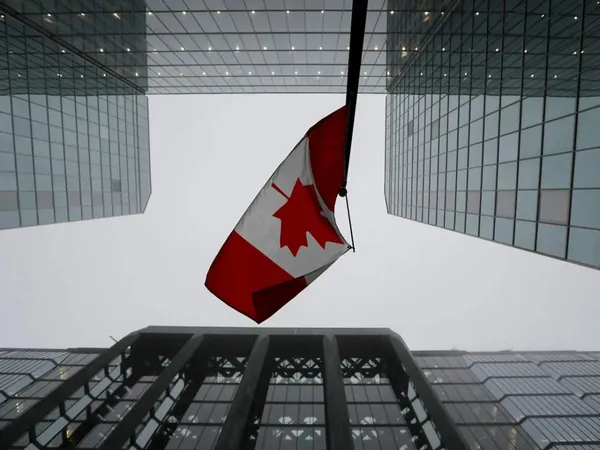
Could U.S. Tariff Retaliation Push Key Interest Rates Higher in Canada?
2025-01-17
Author: Jacques
Could U.S. Tariff Retaliation Push Key Interest Rates Higher in Canada?
In a striking analysis, leading economist Derek Holt from the Bank of Nova Scotia contends that Canada’s response to U.S. tariffs could significantly influence the Bank of Canada’s interest rate decisions. According to Holt, the dynamic nature of U.S. trade policy necessitates a careful consideration of potential retaliation strategies, which could either ease or tighten monetary policy depending on their magnitude.
Holt states, "If the U.S. imposes tariffs without Canada responding, we might see the Bank of Canada pursue further rate cuts. However, if Canada retaliates seriously, it could halt the easing process and might even compel the bank to consider raising rates." This commentary comes ahead of former President Donald Trump’s inauguration, where he has promised aggressive tariffs of up to 25% on a variety of imported goods from Canada.
In anticipation of these tariffs, Canadian officials have prepared a list targeting approximately $150 billion worth of products imported from the U.S. Though specifics about the items remain undisclosed, the economic ramifications could be substantial.
To put it into perspective, Canada imported $31.8 billion in goods from the U.S. in November alone, accounting for 53.4% of the total imports from its top 15 trading partners. This heavy dependency on U.S. imports means that any tariffs could create a ripple effect through the Canadian economy, impacting everything from consumer prices to employment rates.
Holt further explains, "Given the uncertainty surrounding these tariffs, making predictions about the Bank of Canada's policy path is difficult. Should the U.S. enforce high tariffs without retaliation from Canada, we could foresee rate cuts going as deep as 1%." This would be a significant shift from the current benchmark lending rate of 3.25%, which sits at the upper edge of the Bank's neutral range.
Holt emphasizes the broader economic implications of U.S. tariffs, equating them to a tax on Canadian exports that could lead to reduced demand. This would not only slow down economic growth but could also result in higher unemployment, increased spare capacity, and falling inflation rates. The Bank of Canada operates with a mandate of maintaining 2% inflation, and if the economic landscape shifts dramatically, aggressive rate cuts may become a necessity.
Conversely, Holt warns that retaliatory measures could cause the Bank of Canada’s policy rate to rise significantly, potentially by two to three percentage points. This is because retaliating against U.S. tariffs equates to imposing taxes on imports into Canada, which may force the central bank to adjust its rates to stabilize the economy.
As trade tensions loom larger on the horizon, it’s crucial for both Canadian policymakers and citizens to keep a close eye on developments. The interplay between U.S. tariffs and Canadian monetary policy could have lasting implications for the economy, influencing everything from inflation to personal loans and mortgages. The stakes are high, and the outcomes uncertain— Canadian businesses and consumers are undoubtedly waiting with bated breath.









 Brasil (PT)
Brasil (PT)
 Canada (EN)
Canada (EN)
 Chile (ES)
Chile (ES)
 Česko (CS)
Česko (CS)
 대한민국 (KO)
대한민국 (KO)
 España (ES)
España (ES)
 France (FR)
France (FR)
 Hong Kong (EN)
Hong Kong (EN)
 Italia (IT)
Italia (IT)
 日本 (JA)
日本 (JA)
 Magyarország (HU)
Magyarország (HU)
 Norge (NO)
Norge (NO)
 Polska (PL)
Polska (PL)
 Schweiz (DE)
Schweiz (DE)
 Singapore (EN)
Singapore (EN)
 Sverige (SV)
Sverige (SV)
 Suomi (FI)
Suomi (FI)
 Türkiye (TR)
Türkiye (TR)
 الإمارات العربية المتحدة (AR)
الإمارات العربية المتحدة (AR)